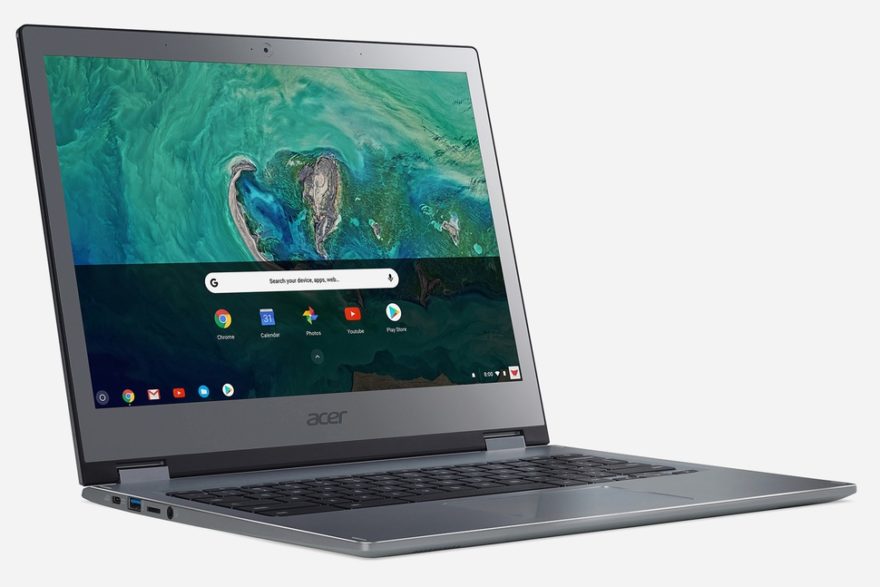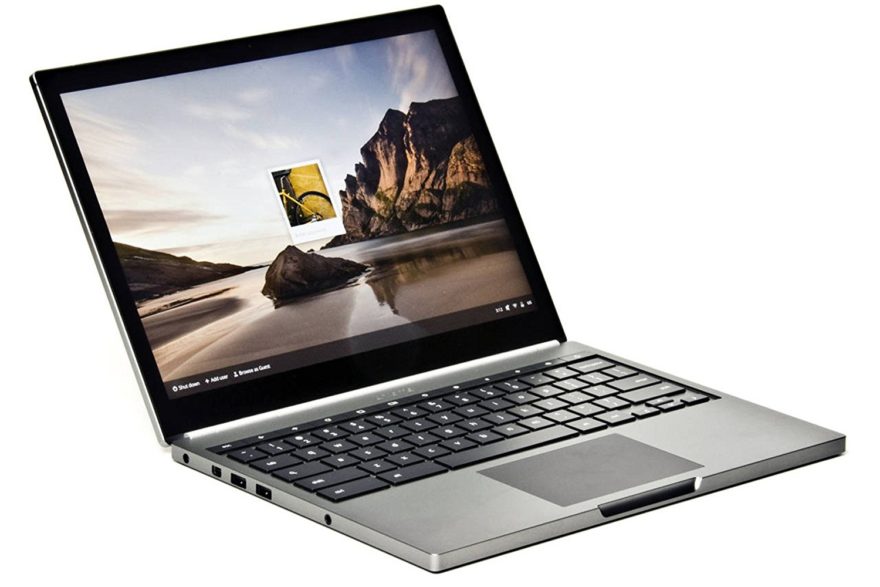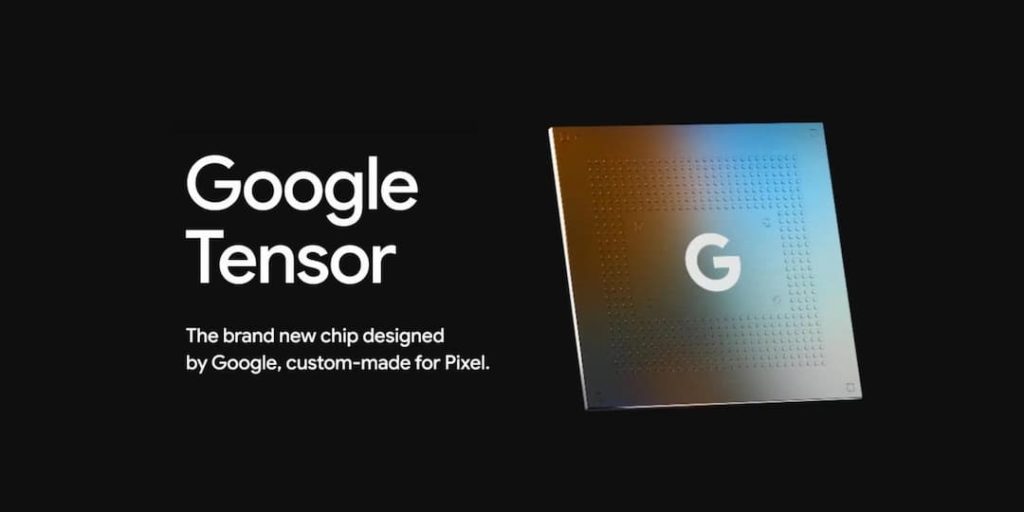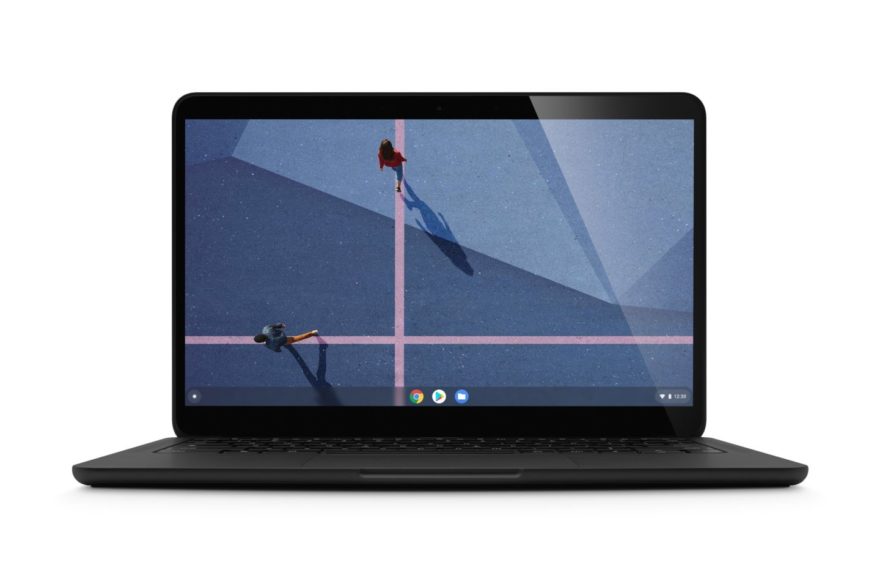Last week, we learned there would be no Pixelbook in 2022. The information came directly from Chrys Tsolaki, Retail Partner Manager for Chromebooks at Google, as reported from a Qualcomm event attended by Trusted Reviews: “Next year [2022] there won’t be anything coming. In the future, I don’t know.”
I spent a few days reading both articles about this news, as well as reader comments on those articles. You’d think Google was pulling out of the total Chromebook market based on some of them. Let’s be real: the lack of a Pixelbook in 2022 isn’t all doom and gloom.
A recap of Google’s own Pixelbooks
First, some perspective. Chromebooks have been available for around 10.5 years, with hundreds of models offered during that time. Out of all of them, only five have been made by Google:
- 2013: Chromebook Pixel
- 2015: Chromebook Pixel (updated edition)
- 2017: Pixelbook
- 2018: Pixel Slate
- 2019: Pixelbook Go
That’s it. Five out of hundreds of very capable Chromebooks are Google-branded.
The product line started out much as a beta, with Google calling it a “proof of concept”. Eventually, with newer models, the line became a little more mainstream with broader retail availability.
Clearly, the Pixelbook products have a passionate fan following. I include myself in that group, having purchased every single one of the five models. But the times have changed since the earlier versions of these Chromebooks, and even now.
The purpose of a Pixelbook and more choices
That gets me to a slightly deeper dive into the above timeline. Though the two Chromebook Pixels and the original Pixelbook, Chromebook users really didn’t have much choice when it came to high-end laptops running Chrome OS. You pretty much had to choose a Google-branded Chromebook Pixel or Pixelbook to get the best display, the latest processor, and a choice of the most memory.
But then we started to see a shift in Google’s hardware partners as they expanded from entry-level and classroom Chromebooks to the mid and high-end range of devices.

I saw this in 2018, one year after the original Pixelbook debuted, and bought an Acer Chromebook Spin 13 with a newer Core i5 processor, a very comparable display to the Pixelbook, and 16 GB of memory. Oh, and that model cost $100 less than a similarly configured Pixelbook.
At that time, I said:
Overall, the Acer Chromebook Spin 13 is the first Chromebook I’ve used that rivals or exceeds the Google Pixelbook. And it does so at a lower cost. That’s impressive.
Is the Acer as thin as or as nicely designed as the Pixelbook? That’s subjective and I’d personally say no. But I still have and use that device, having gotten over some of the design differences. It’s been a powerhouse that’s gotten me through undergraduate coding classes. And it’s now doing the same in a Masters program.
Let’s move forward in time after the Acer Chromebook Spin 13 debuted though.
Now instead of one or maybe two high-end Chromebook choices, just about every Google hardware partner has an option available:
- Acer Chromebook Spin 713
- ASUS Chromebook CX9
- Dell Latitude 7410 Chromebook Enterprise
- HP Pro C640 Chromebook
- HP Chromebook x360 14c
Not all of these can be configured with the latest Core i7 or more than 8 GB of memory, but some can. And from a price perspective, they’re still likely less expensive than a comparable Google-branded Chromebook. If there was one, that is.
Let’s talk about pricing and markets
The Google Pixelbook lineup has almost always been priced higher than any competing devices when we finally started getting some of those. Heck, when Google was the only one making such Chromebooks, prices started at $1,299 and went up from there. I paid nearly $1,500 for the second Chromebook Pixel, for example. I never regretted that purchase but the point is that it’s challenging for Google Chromebooks to compete on price.

The company simply doesn’t sell enough laptops compared to its hardware partners to get the type of volume discounts on CPUs and other components.
Yes, some people are willing to pay more. I was! But are there enough people like me out there for Google to make a profit on its own Chromebooks? I doubt it based on sales whisper numbers and analyst reports of the Chromebook market.
The situation may have changed but when I was at Google, there was a renewed effort on profitability outside of the company’s search and ads revenue. Those make up around 90% of Google’s income, so it makes sense for the company wanting sales diversification.
That’s partially why the Google Pixel phone line still exists. No, these handsets don’t sell in enough quantity to compete with Apple, Samsung, and others. But the phone market is a much larger market. Put another way: We have a few billion phone users on the planet so there’s a large incentive for Google to stay competitive there. Especially when you have the most used operating system when it comes to phones.
The computing market is different, though. Google’s Chrome OS isn’t the major platform player that Android is. It’s competing against the massive Microsoft Windows juggernaut, a growing macOS userbase, and Linux to a lesser degree. This is a market that’s estimated to have shipped 275.15 million PCs in 2020. Conversely, an estimated 1.38 billion phones shipped worldwide in the same time period.
If you’re not price competitive in the smaller PC market, you might as well focus on getting a bigger piece of the larger pie. Why offer a Pixelbook in 2022 when you pay more for the components, face a global chip shortage, and have more opportunities for profit in the phone market?
Architecture changes from x86 to ARM
None of the above highlights another relevant point. Google finally has a custom-designed ARM processor with the Tensor chip in the Pixel 6. Now that it does, the time to transition Chrome OS from an x86-first to a best-in-class ARM experience just makes sense.

I’m not suggesting that Google’s going to use the Tensor chip inside the Pixel 6 for a new Chromebook. Instead, I suspect Google builds upon the Tensor design to further customize a chipset for Chromebooks.
That. Takes. Time.
Any primary Tensor chip efforts up to the Pixel 6 launch had to be focused squarely on the Pixel 6. That was goal one. Use of a modified Tensor shop for a Pixelbook? That’s goal two in mind. And given the time it takes to design a chip for a custom software platform isn’t done in days or weeks. Maybe not even months, depending on the situation. You have to realize that Google started working on the Tensor chip a few years ago.
So to expect a Pixelbook in 2022, at least with Google’s own custom silicon, isn’t realistic. And while the company could use Intel processors inside a Pixelbook next year, these would still face (and likely lose) a price competition against other Chromebook makers.
Think long term
Look, I get it. Diehard Pixelbook fans are disappointed. From a personal standpoint, so am I to a degree. Although it got better over time, the Pixel Slate was a general flop for Google. The Pixelbook Go is a great device… for my wife. She has one and loves it. For me, it simply doesn’t offer the performance I need for the way I use a Chromebook.

So I’m with you on the disappointment that we won’t see a Pixelbook in 2022.
But Google is thinking long-term here and we should too. We may personally prefer a Google-branded Chromebook for the design or a few special features, but most people buying Chromebooks don’t. Or if they do, they see similar Chromebooks at lower prices.
Let’s give Google a breather here and see what’s in store for the Pixelbook line after 2022. We may still pay more for the Pixelbook experience but with a custom ARM processor specifically designed to work with Chrome OS, we could see premium features that are worth that extra price to us and to others. 18 hours of battery life, for example. Or integrated LTE by default. Who knows?
I’m willing to wait instead of writing off Google’s Pixelbook efforts as doom and gloom. Are you?


5 Comments
Hi. I greatly respect your expertise and opinions but I sincerely disagree.
First off, Google makes $65 billion a quarter. Yet we see tech companies that make a mere fraction of that a year releasing scores of products. Maybe not as many, maybe they don’t have all the configurations and features, but yet Dell, HP, Acer, Asus, Razer, MSI, Nintendo, Sony etc. were able to get products out because they are committed to it and expend a maximum of dedication and effort to it. Tons of people have said for years that they have never seen this sort of commitment from Google on products and services unrelated to search and ads, and stuff like their effectively idling Stadia after less than 3 years and going from 2018-2023 with no Pixel hardware is further proof.
I am not buying that this needs to wait on a custom chip design. If Google was able to release 3 underwhelming phones with the Snapdragon 765G in 2020-2021 while working to get the Pixel 6 out the door, they could have done the same and released an iterative Pixelbook 2 with (because of the chip shortage) 11th gen Intel Core i3 and 10th gen Intel Core i5 and i7 CPUs. Or if they had to go to ARM right away … plenty of good Qualcomm and MediaTek options available, or they could have used the opportunity to try to get Samsung into using Exynos SOCs for ChromeOS.
As for the 275 million PCs versus 1.38 billion smartphones … to be honest Google has no chance of breaking the Apple/Samsung/China triumvirante duopoly because those 3 make clearly better products. To give you a hint of their plight: Google’s goal is to sell 10 million Pixel 6 phones, which is the same number of FOLDING PHONES that Samsung plans to manufacture in 2022.
By contrast, with the right strategies Google could actually sell more ChromeOS devices Pixel phones. First, they should absolutely copy the Surface SE for their own, except in the process remind everyone that ChromeOS devices that cost $250 can actually perform well on a variety of tasks and run on ARM. To undercut Redmond even lower, they can (have Foxconn) make ARM-based Chromeboxes for under $70 – the Chromebit was only $85 – and use them to aggressively target education, government, SMB, industrial, entertainment and overseas channels. For the high end, Google absolutely could produce iMac Pro and Mac Pro type workstations and small servers, except have them start at $3500 instead of $6000 and aim them at the open source techie/scientific/content creator/rack room crowd instead of the people who are going to find themselves increasingly locked into things that will run on Apple’s proprietary hardware and software. (Don’t want to use Intel Core i9, Xeon or the AMD equivalent? ARM workstation and server SOCs do exist.)
They won’t make as much money selling 10 million ChromeOS devices as they would selling 10 million smartphones, which is why they should absolutely stay in the smartphone business. But you are really underestimating what selling half as many ChromeOS devices as Apple sells macOS devices in a typical year would do for the reputation of Google’s hardware division as well as the reputation of ChromeOS in general. Especially since it wouldn’t just be Google doing this. If Google were to make a $75 Chromebox to be used as Google Duo devices in classrooms and office meeting rooms as well as programmable IoT devices for manufacturing and medical settings, the many companies that specialize in inexpensive gadgets comes out with one for $45 a year later. Dell, Lenovo and HP would similarly come out with their own “Chromebox Pro” workstation and small server devices. If they won’t then Asus and Acer – who badly want more enterprise business but are mostly locked out by the big 4 of HP, Dell, Lenovo and Apple – would definitely try.
Bottom line: Google throws away a ton of money and influence for themselves by using any little setback or adversity as an excuse to throw up their hands and retreat to the security of their ads and the online free products like search, YouTube and Gmail that drive them. But their hardware division could be so much more if they were to try a bit harder.
Lotta words up there above me !
I just want a 17 inch screen with sound like my eight year Toshiba that has Skull Candy and a 256 SSD.
Is that gonna happen ?
Yeah. Dell XPS 17.
Apple are just running ahead with tech (where it matters, not pointless things) and stability of product lines that people know they can count on.
Google and Microsoft are both just bad at this stuff. Google has virtually zero track record of selling things for money direct to consumers. Microsoft just relies on it’s monopoly.
People on here say Chrome OS is taking off big time, but it’s not, no one in Europe knows what a Chromebook is and professionals laugh at people who use them. Growth figures maybe high but they always are when you are still at practically zero. Reality is average people don’t know what Chromebooks are.
Chrome OS just wont be around for much longer unless Google takes it seriously.
I love the 2017 Pixelbook and it is actually stil my primary ChromeOS device to this day. Of course, it is more casual that everyday driver for me so that is workable. What I really love with the 2017 Pixelbook is the design (minus the monster bezels). It is far more functional as a 2-in-1 than anything else I’ve come across on the Chromebook market (which end up being chonky in tablet mode).
I do hope that Google does create a Tensor for ChromeOS devices and they showcase it in the next Pixelbook if they make one. This device has right about 2.5 years of auto support left and I’ll probably ride it to it’s grave in hopes a new Pixelbook comes out before then.
If not, I’m not sure what route I’ll end up going. I’m interested in the ASUS CX9 but it doesn’t have a tablet mode but from a pure laptop design the device is gorgeous. I’ve also been considering the HP Chromebase (though being capped at an i3 is dissapointing).